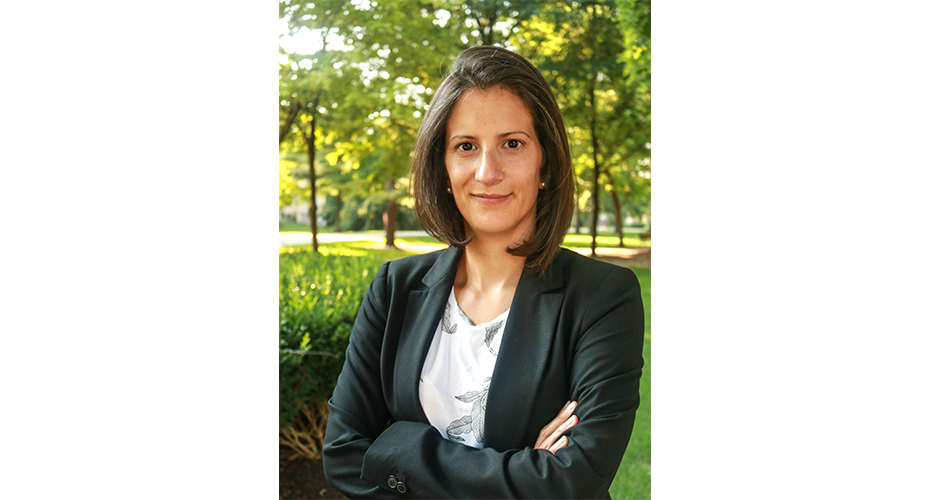€1.5m ERC Starting Grant Awarded to UCD project exploring crime and welfare in Latin America
News and Events
- Events Calendar
- €2m ERC Consolidator Grant awarded to UCD project examining the development of European identity in young people
- 10 Year College Anniversary Schedule of Events
- UCD College of Social Sciences and Law Hosts Inaugural Annual Social Sciences Lecture with Professor Wayne Holmes
- UCD and Gaisce Announce New Partnership to Support President’s Award Participants
- €1.5m ERC Starting Grant Awarded to UCD project exploring crime and welfare in Latin America
- Prof Joanna Brück elected International Fellow of the British Academy
- UCD College of Social Sciences and Law Celebrates Four Subjects in QS Top 100
- €2.5m ERC grant awarded to UCD project examining Ireland’s Platform Economy Ecosystem
- 2024 UCD Research Impact Case Study Competition winners announced
- 90 years of UCD Social Policy, Social Work and Sociology
- Societal benefits and risks of AI
- UCD College of Social Sciences and Law Teaching Awards 2024
- Social Sciences and Law Micro-credentials
- Childrens School Lives Reoprt
- QS World University Rankings 2024
- Working in the Tech Industry – Using Data Science for Social Insights
- UCD appoints new College Principal for the College of Social Sciences and Law
- UCD Student Team Wins Runner-Up for Technical Excellence at the Data4Good Festival
- 2023 UCD Research Impact Case Study Competition winners announced
- News Archive

Dr Lucía Tiscornia to receive €1.5 million ERC Starting Grant for ground-breaking research project
The UCD College of Social Sciences and Law is proud to congratulate Dr Lucía Tiscornia, Assistant Professor at the UCD School of Politics and International Relations, on being awarded a prestigious European Research Council (ERC) Starting Grant.
Dr Tiscornia’s project, CRIMLATAM: Criminal Governance in Unexpected Contexts: the Role of the Welfare State in Latin America, will examine how criminal organisations — including gangs, mafias and drug cartels — operate within democratic societies that have strong social welfare systems.
While criminal governance is often associated with fragile or failing states, CRIMLATAM will investigate how such groups adapt and thrive in countries with robust welfare provision, focusing on Argentina, Chile and Costa Rica. The project will engage directly with communities living under criminal governance, whose perspectives are often absent from current research.
Speaking about the award, Dr Tiscornia said:
"CRIMLATAM aims to show how criminal groups adapt and operate in unexpected environments. The project will improve our understanding of one of the most persistent challenges for democracies today and aims to demonstrate that governments can make choices that reduce the societal impact of criminal organisations.
This ERC grant provides me with the necessary resources to address a significant social challenge from a different perspective. It also represents an important validation of work I have been conducting for several years, allowing me to dedicate myself fully to this project, with the goal of producing findings that will contribute to academic knowledge and policymaking."
The ERC Starting Grant will provide over €1.5 million in funding to support Dr Tiscornia’s work. She is one of four UCD researchers awarded an ERC Starting Grant in this round, and one of only eight recipients across Ireland.
Welcoming the achievement, Professor Kate Robson Brown, UCD Vice-President for Research, Innovation and Impact, said:
"Congratulations to the four UCD academics who have received ERC Starting Grants. Their innovative projects promise to make major contributions to their fields and address critical scientific and societal challenges. We are committed to supporting academic career development and ambitious research at every stage in UCD, and we look forward to following the progress of these outstanding researchers."
With this latest success, UCD has now secured 39 main ERC grants under the Horizon Europe Programme, representing approximately €78 million in funding and 45% of the national total.
The ERC Starting Grants recognise and support early-career researchers of exceptional promise, providing them with the resources to build their research teams, develop independent projects and pursue their most promising ideas.
For more information on the ERC Advanced Grants and a full list of awarded projects, visit the (opens in a new window)ERC website.